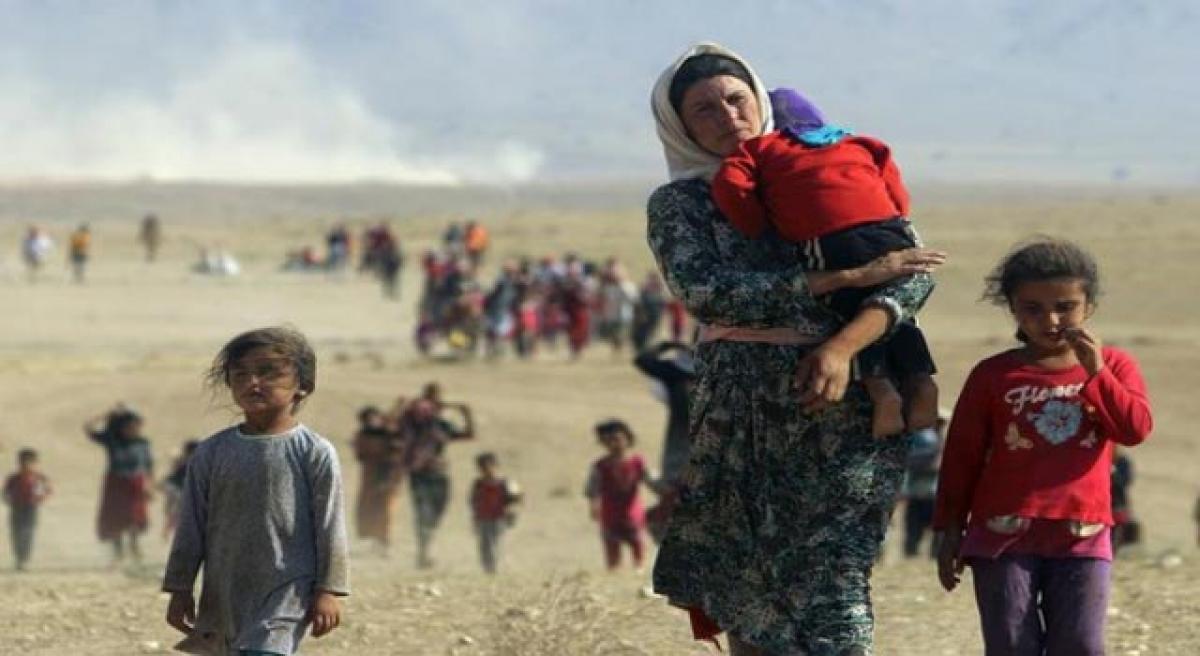Syria’s sad predicament

Second, the quarrel over Basher al Assad’s continuing in power reminds one of Pierre Goubert’s seminal book Louis XIV and 20 million Frenchmen published in 1992.
As one contemplates the ever worsening state of Syria, a few thoughts dominate. One, though Russia, the former superpower and the United States, the superpower in decline, appear to be at loggerheads, there seems to be a sinister but unacknowledged unity of purpose that brings them together; the net result of their policies has been the destruction of Syria where the death toll has reached 5,00,000 over five years, working out to more than 11 an hour.
Second, the quarrel over Basher al Assad’s continuing in power reminds one of Pierre Goubert’s seminal book Louis XIV and 20 million Frenchmen published in 1992. In contrast to conventional accounts, Goubert tells us a lot about the 20 million French rather than concentrate exclusively on their king.
The question as applied to Syria is this: Is it a matter of such transcendental importance to keep Assad in power or remove him even at the cost of the lives of hundreds of thousands of ordinary Syrians and the displacement of half of the country’s total population of 22 million? The third thought is the culpable inability of Russia and the United States to come to a common understanding to put an end to the carnage and move Syria towards peace and normality so that Syrians can choose a government in a democratic fashion.
Russia and the United States have so much mutual distrust that they are unable to sit down and discuss differences in a rational and civil manner. Instead of resorting to the diplomatic practice of private talks, the United States, frustrated over what it sees as Russia’s unreliability as a partner, has started the dangerous practice of publicly attacking Russia.
On 3rd October, Washington announced the suspension of talks with Russia over Syria. Anticipating the announcement from Washington, Moscow announced that it was ending the agreement entered into in 2000 that required each side to dispose of 34 tonnes of plutonium originally meant for making weapons. While the agreement on plutonium is not the core of the post-Cold War strategic understanding between Moscow and Washington, even their disagreements over Ukraine and Russia’s annexation of the Crimea in March 2014 did not affect it.
Here is a troubling instance of a clash over Syria affecting other matters. On 7 October, Secretary of State John Kerry said that Russian and Syrian military strikes against civilians and medical facilities in Aleppo should be investigated as war crimes…Paris and London echoed Kerry’s call for a probe. Germany has not until now. However, there is hardly any chance of the matter being taken up at the International Criminal Court as Russia and possibly China too might use their veto powers in the UN Security Council.
For, it is only the Security Council that can ask the Court to start an investigation. Obviously, the real intention is to sully Russia’s image and make it look a pariah… The West made an unsuccessful attempt at the Security Council to halt the bombing in Aleppo. France and Spain moved a resolution calling for such a halt when the Council met on 9 October, with Russia in the chair. The draft asked UN Secretary General Ban Ki-moon to propose options for a UN-supervised monitoring of a truce and refers to “further measures” in the event of non-compliance by “any party to the Syrian domestic conflict.”
Russia used its veto and the resolution was rejected. To complicate matters, Russia moved a resolution that called for a cease-fire and the implementation of the failed cease-fire agreement. The resolution called on the rebels in Syria to separate themselves from UN-designated terrorists, a prime objective of Russia when it agreed to the cease-fire.
Egypt voted for both the resolutions despite their differing import. Saudi Arabia and Qatar have expressed their displeasure. The latest is that Saudi Arabia’s Aramco did not send the monthly shipment of 7,00,000 tonnes of crude at the agreed concessional rate and Egypt had to float tenders for crude worth $500 million. This is an example how Syria-related issues affect bilateral relations. Of course, the vote was only the last straw as the two countries have had differences over other matters as well…
There is need for fresh thinking to put an end to the senseless carnage in Syria. Will Obama’s successor in the White House provide it? Until then, how many more human lives will be lost? By the time the new US President enters office, would eastern Aleppo have fallen, creating an atrocious humanitarian tragedy? (Courtesy: www.idsa.in)
By K P Fabian










